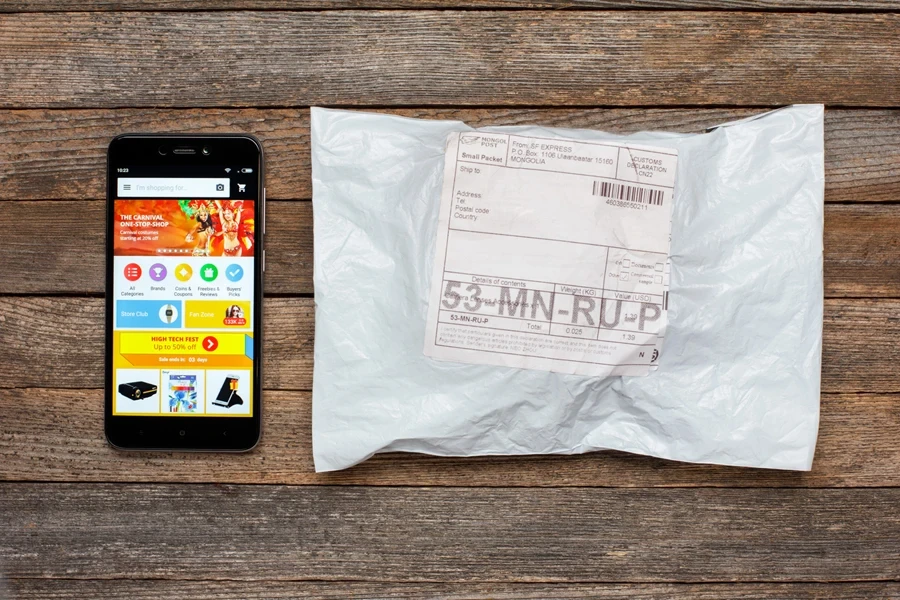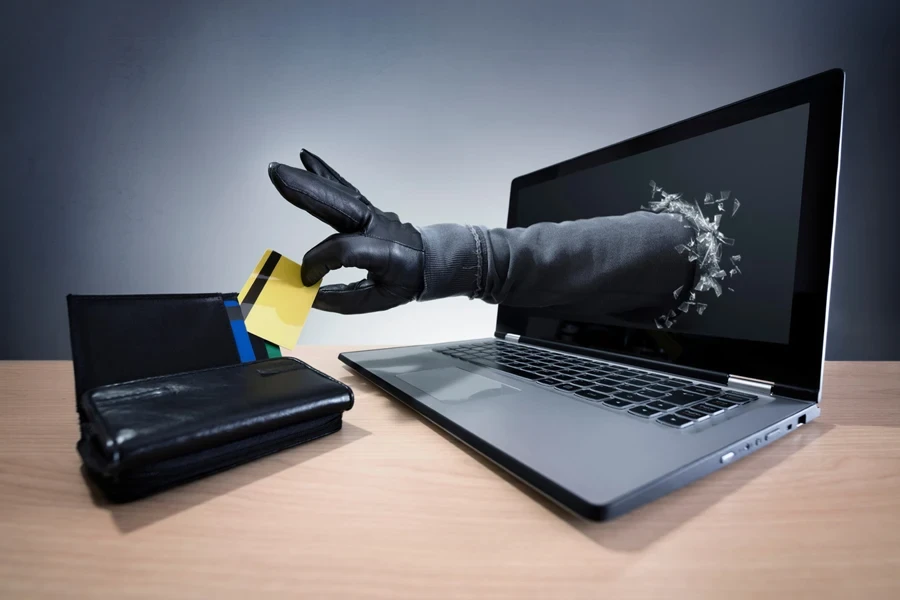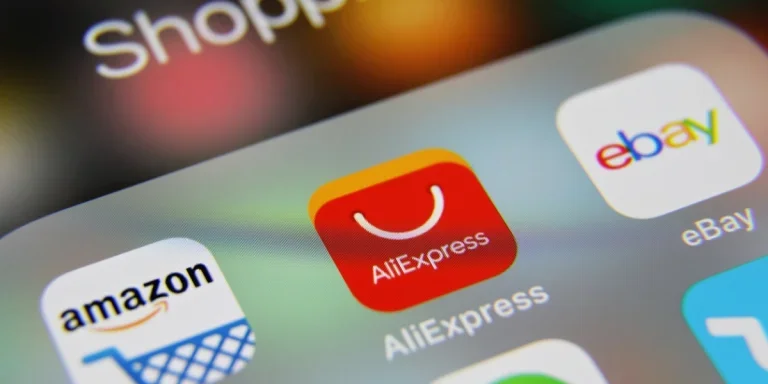AliExpress is popular for its low prices, wide selection, and the occasional exciting bargain. However, like with any large marketplace, it’s important to shop with awareness. While many transactions go smoothly, some risks do exist, from unreliable sellers to counterfeit goods.
These issues aren’t necessarily widespread, but they are worth knowing about so you can shop confidently and avoid common pitfalls. This guide outlines the common types of scams reported on AliExpress and provides practical tips to help you recognize and avoid them. In online shopping, being informed is your ticket to browsing safely, anywhere, and anytime.
Table of Contents
Aliexpress scams: 6 Common ones and how to tackle them
1. Fake products
2. Items not delivered
3. Misleading product descriptions
4. Price switching
5. Payment fraud
6. Fake seller profiles
What to do if you’ve fallen for a scam on AliExpress
1. Contact the seller
2. Open a dispute
3. Escalate the dispute
4. Leave a review
5. Learn from the experience
In conclusion
FAQs
1. Is it safe to buy from AliExpress?
2. Will AliExpress refund me if I get scammed?
3. What precautions should be taken when buying products on AliExpress?
4. Will Aliexpress scam new users?
5. What are the common signs of a scam on AliExpress?
6. What is the difference between Alibaba and AliExpress?
Aliexpress scams: 6 Common ones and how to tackle them
1. Fake products

This is one of the more common tactics seen on online marketplaces. Some sellers may list what appear to be original products using authentic-looking photos. Still, the item that arrives might be of noticeably lower quality, sometimes resembling a poorly made imitation.
Because these sellers often use convincing product images, they can be difficult to identify at first glance. However, with a few precautionary steps, it’s possible to spot and avoid these listings before making a purchase.
Here’s how to avoid fake products on Aliexpress
Fake product listings may have all the bells and whistles of an authentic one, but they can’t cover all their tracks. With some detective work, you’ll catch them easily and avoid buying from them. Here’s what to look for:
- Check the seller’s ratings to see how others feel about them. The lower the rating, the more reason you have to avoid.
- Next, check the reviews. You should target those with photos (they’ll most likely be from a real person) to see if what others got matches the pictures.
- Even if the sellers say everything is authentic, check if they have certifications on their profile or other proof. If you won’t buy something suspicious from someone on the street, don’t buy it online either.
2. Items not delivered
Here’s another common issue that still occurs today: some sellers may fail to deliver items. In these cases, a seller might promote an appealing offer (such as a low price or bundle deal), and after payment, the buyer may not receive the product at all.
In some instances, sellers may provide fake tracking numbers to delay suspicion and create the appearance that the item was shipped. This is not unique to AliExpress; it can happen across any e-commerce platform. Occasionally, sellers may close their stores and reopen under a different name, making it more difficult to file a complaint or request a refund.
How to avoid falling for items not delivered scams
The good news is that AliExpress responded quickly and introduced Buyer Protection to ensure customer safety. You can use it to receive a refund if your order is damaged, doesn’t match the description, or fails to arrive.
Still, it’s essential to monitor your order status regularly. If you spot anything suspicious, don’t hesitate to contact AliExpress support. Here’s one more thing you can do: review the seller’s history. If they have a history of not delivering, you’ll most likely see it there.
3. Misleading product descriptions

While product photos can present items in the best possible light, descriptions may also enhance their appeal. However, there are cases where the product received might not fully match what was advertised. Some sellers may use polished descriptions and attractive images that create high expectations, but the items could differ in size, quality, or functionality.
For example, a buyer might expect a full-sized product but receive a smaller version, or the materials used may not meet expectations. In some cases, the item may not perform as intended.
How to avoid falling for misleading product descriptions
Highly convincing product descriptions shouldn’t be the only thing that gets you to buy. It helps to closely examine the seller’s reviews, as other buyers often mention if the product is not as it should be or is disappointing.
And even if you see mostly positive reviews and something still feels off, you can always contact the seller. It’s better to ask as many questions as possible before you buy than fall for a scam. Also, a seller with nothing to hide won’t be irritated by your questions, so keep that in mind.
4. Price switching
This issue can be easy to overlook. For example, you might find a cooking pot listed for $20 and decide to buy it. However, when you’re ready to check out, the price may have changed, sometimes significantly, like jumping to $100.
Sometimes, this happens because the seller has updated the listing after you added the item to your cart. This type of price may not always be immediately obvious, especially if you’re in a hurry. While not extremely common, it’s a good reminder to double-check the final price before completing your purchase.
How to avoid falling for price-switching scams
Don’t rush to buy anything. Double-check all details, especially the final price, before clicking “buy.” That’s why the order summary gives you a quick look at everything before you commit to the purchase. So, recheck the listing to see if anything seems off (even if it’s a small price change).
Once again, don’t forget to check seller reviews. Anyone who has fallen for price-switching scams will most likely mention it there.
5. Payment fraud

Some sellers may try to tempt you to pay outside of AliExpress. They may offer more enticing discounts or include a gift to persuade you to agree. However, doing so removes the protections offered by AliExpress Buyer Protection and increases the risk of fraud.
In some cases, these off-platform payment methods may involve fake payment pages that collect your personal or financial information. Once the payment is made, the seller may no longer respond or fulfill the order, leaving you without recourse.
How to avoid falling for payment scams
Always use AliExpress’s payment methods. The platform’s built-in Buyer Protection ensures that all transactions are safe, and you’ll receive a refund if something goes wrong. Sellers asking for offline payments are trying to skirt this system, so that’s your sign to run away.
6. Fake seller profiles
Fake seller profiles are another scam to be aware of. Some sellers may create and enhance these profiles with counterfeit reviews and numerous products. They might make them look real enough to avoid suspicion, which can make it difficult for buyers to identify potential issues before making a purchase.
How to avoid falling for fake seller profiles
Put on your detective hat and conduct a thorough background check. Sellers have profiles on AliExpress, so you can always check how long they have been on the platform. The longer they’ve been selling, the safer you’ll be, especially if they have good feedback.
However, if the account was only recently started and already has many suspicious, high-quality reviews (especially those without pictures), it’s best to proceed cautiously. Remember to trust your instincts—if something feels wrong, it most likely is.
What to do if you’ve fallen for a scam on AliExpress
If you suspect you’ve been affected by a scam, there may still be steps you can take. While not every case leads to a resolution, AliExpress does offer support through its dispute process. In cases where a resolution isn’t possible, leaving an honest review can help inform other buyers. Here’s what you can do if you’ve had a problematic transaction:
1. Contact the seller

The seller may have just scammed you. But what if it was a mistake? You should first try contacting the seller to see if they sent you the wrong item or to resolve any mix-ups. You may be lucky, and the seller may not want negative reviews, so they’ll be willing to resolve the issue as soon as possible.
2. Open a dispute
What if the seller is a scammer? In the worst-case scenario, they may ghost you or fail to provide helpful solutions. That’s where you open a dispute. You’ll be able to file your complaint with proof that you got scammed (i.e., photos, screenshots, and any other evidence—the more the better).
3. Escalate the dispute

If it’s still not working, the next best thing is to escalate the dispute. Usually, this means you’re calling AliExpress to check everything, including your evidence and the seller’s response. Then, they’ll make the final call. Although it may take some time, there’s a good chance AliExpress will take your side if you have solid proof.
4. Leave a review
If it works, leave a review for others to see. Describe your experience so other buyers will know what to avoid. If you didn’t get the desired resolution, leave a review to warn others.
Note: If you received a counterfeit product, you may need to return it. After that, AliExpress will refund you.
5. Learn from the experience
Experience will always be the best teacher. So, if you get scammed once, you should be able to spot the red flags next time and cleverly avoid falling for the same trick twice.
In conclusion
While scams can occur on any large marketplace, they shouldn’t prevent you from making the most of the deals available on AliExpress. Staying alert and informed can help you avoid common pitfalls and shop more confidently.
Whenever possible, complete all transactions within the AliExpress platform to benefit from Buyer Protection. Always review seller ratings and feedback before placing an order. And if issues do arise, use the dispute process to seek a resolution.
FAQs
1. Is it safe to buy from AliExpress?
Buying from AliExpress can be safe if you take precautions—check seller ratings, read reviews, and use the platform’s Buyer Protection for secure transactions.
2. Will AliExpress refund me if I get scammed?
Yes, but only if you follow the right steps. You’ll need to open a dispute before the Buyer Protection window closes and provide clear evidence, such as photos or tracking info. If the seller doesn’t resolve it, AliExpress will usually refund your money.
3. What precautions should be taken when buying products on AliExpress?
Don’t rush to click “Buy.” Take time to read the full product description, and don’t rely on the pictures alone. Look for sellers with plenty of positive reviews, especially ones with real customer photos, and avoid spending big money with sellers who are new or have little to no feedback.
4. Will Aliexpress scam new users?
AliExpress as a platform doesn’t scam people, but some sellers may try to take advantage of buyers who are new or unaware. That’s why it’s important to do your research, read reviews carefully, and stick with sellers who’ve built a good track record. Use the Buyer Protection feature — it’s there to help if things go wrong.
5. What are the common signs of a scam on AliExpress?
If a deal looks way too good to be real, it probably is. Be cautious of listings with no reviews, unclear descriptions, or flashy images that seem ripped from brand websites. Also, avoid sellers who try to rush you into confirming delivery or push you to message them outside the platform; those are big red flags.
6. What is the difference between Alibaba and AliExpress?
Alibaba is a B2B (business-to-business) platform designed for bulk orders from manufacturers and suppliers, while AliExpress is a B2C (business-to-consumer) platform where individuals can buy single items at retail prices.




